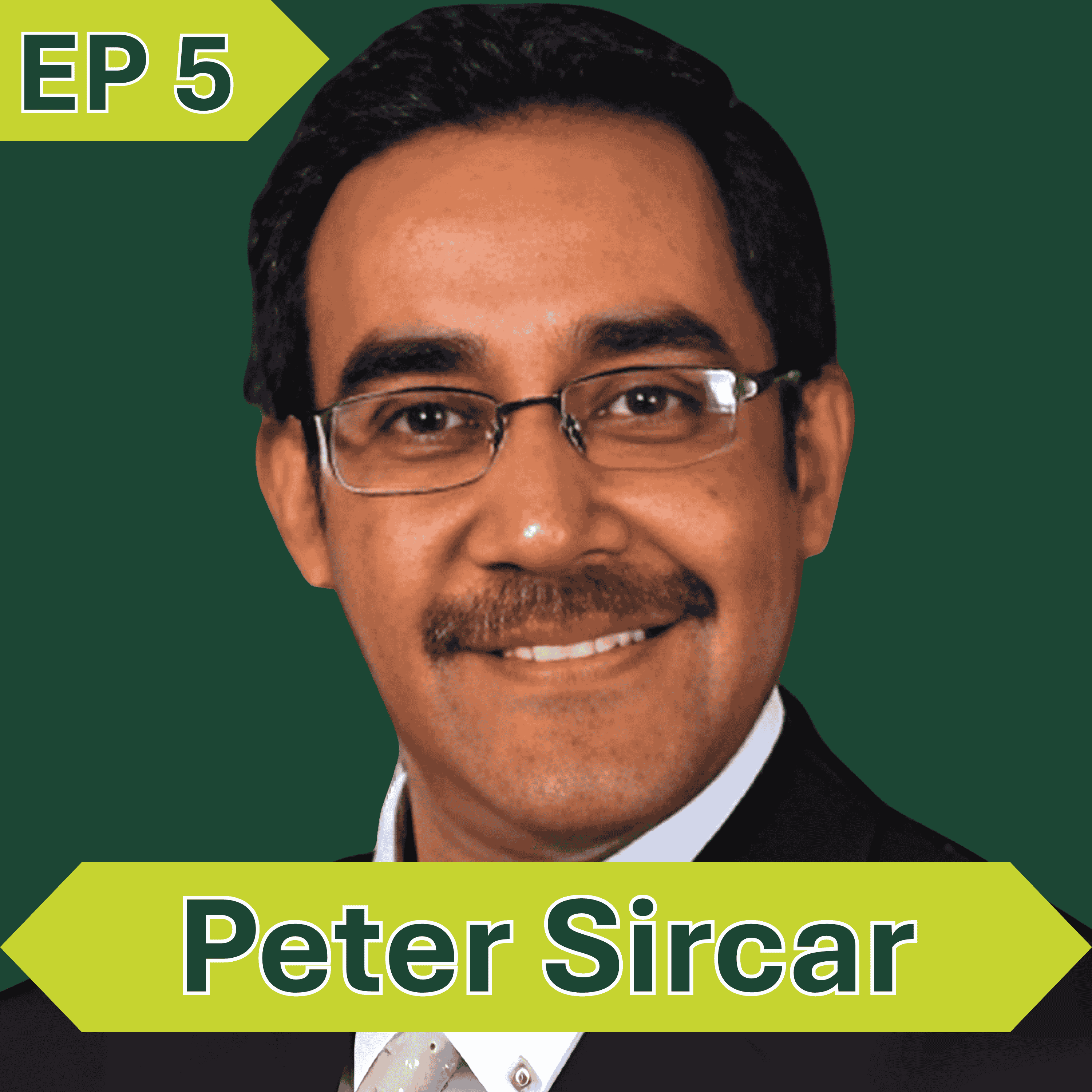Using Less Stuff: The Bursars Podcast

Using Less Stuff: The Bursars Podcast
Podcast Description
Explore smart sustainability with the Using Less Stuff Podcast, hosted by Nigel Ward, founder of The Cost Reduction Company.
Discover how organisations can reduce costs and environmental impact through behaviour change, smarter purchasing, and sustainable technologies. Join conversations with industry experts and changemakers focused on cutting waste, saving money, and building a culture of resource consciousness.
Learn from real-world case studies and practical insights that empower your business to thrive while using fewer resources. Whether you're a business leader or sustainability advocate, you'll gain tools to make meaningful, measurable change.
Follow the Using Less Stuff Podcast for powerful strategies in cost reduction and lasting sustainability.
Podcast Insights
Content Themes
This podcast focuses on themes of sustainability, environmental management, and cost reduction, featuring episodes that explore topics like behavior change in organizations, smarter purchasing strategies, and the integration of sustainable technologies. For example, episodes may delve into how businesses can implement a culture of resource consciousness or showcase real-world case studies that illustrate successful waste reduction practices.

Explore smart sustainability with the Using Less Stuff Podcast, hosted by Nigel Ward, founder of The Cost Reduction Company.
Discover how organisations can reduce costs and environmental impact through behaviour change, smarter purchasing, and sustainable technologies. Join conversations with industry experts and changemakers focused on cutting waste, saving money, and building a culture of resource consciousness.
Learn from real-world case studies and practical insights that empower your business to thrive while using fewer resources. Whether you’re a business leader or sustainability advocate, you’ll gain tools to make meaningful, measurable change.
Follow the Using Less Stuff Podcast for powerful strategies in cost reduction and lasting sustainability.
In this episode of the ISBA Bursar Conversations, host Nigel Ward welcomes Peter Sircar, Director of Finance & Resources at Hammersmith Academy to unpack lessons learned from decades in international school business management covering growth, strategy, and the future of multi academy trusts. Peter Sircar shares his journey from law to becoming a leader in school business management. He reflects on his experiences across various educational institutions, including overseeing the growth of a large school network and modernizing systems at a prestigious grammar school.
Peter highlights his strategic approach to leadership, emphasizing the importance of long-term planning, technology integration, and a people-first mindset. He discusses how his background in law, finance, and IT shaped his role and offers advice for those entering the field of educational business management, stressing resilience, passion, and the need for strategic thinking.
Key Takeaways:
– From Law to Education
Peter shares his early career ambitions to be a human rights lawyer, but a change in circumstances led him to focus on education and school business management.
– Lessons from the Largest School Network
His work at a large school network, where he helped grow the organization from a few to 100 schools, taught him valuable lessons about school management, HR, payroll, and project management.
– Building and Automating Systems
Peter combined his legal and finance background to automate processes in education, streamlining operations and introducing new technology.
– Leadership in Crisis and Growth
Reflecting on his career, Peter highlights his approach to leadership, including managing rapid growth, navigating the death of his father, and balancing work and personal life.
– People-Centric Leadership
Peter shares a powerful story about improving staff morale and ownership by acknowledging and respecting cleaning staff, showing the importance of appreciation in leadership.
– The Role of Strategic Planning
Peter discusses how strategic thinking in education management is key. From facilities management to staff development, he stresses the importance of planning for both short- and long-term goals.
Key Timestamps:
[00:00:00] – Teaser
[00:00:58] – Introduction and Peter’s educational background
[00:02:11] – Experience at a large school network: growth and challenges
[00:06:59] – Balancing personal and professional life
[00:09:53] – Leadership lessons and project management in education
[00:17:19] – The tension between institutional legacy and business realities
[00:23:06] – Peter’s passion for education and the drive to become a bursar
[00:25:56] – Advice for transitioning into educational business management
[00:27:58] – The importance of outsourcing and streamlining operations
[00:34:13] – Managing maintenance, grounds, and in-house teams
[00:39:24] – Commercializing school assets and developing new income streams
[00:44:42] – Innovations under financial pressure and sustainability models
[00:50:55] – The future of school business managers and strategic leadership
[00:54:02] – Conclusion
Connect Our Guest on:
Linkedin: https://uk.linkedin.com/in/petersircar
Facebook: https://www.facebook.com/peter.sircar/
Connect with Nigel Ward on:
LinkedIn: https://uk.linkedin.com/in/nigel-ward-author-of-using-less-stuff-88684a25
Follow Using Less Stuff Podcast on Social media:
👉 Facebook: https://www.facebook.com/TheCostReductionCompany
👉 Twitter: https://x.com/The_CRC
👉 LinkedIn: https://www.linkedin.com/company/the-cost-reduction-company/
👉 YouTube: https://www.youtube.com/@thecostreductioncompany8128
🙌 Enjoyed this episode?
Share it with someone exploring leadership in education or considering a career pivot into schools from the military or corporate world.
📢 Disclaimer:
This podcast is for educational purposes only and does not substitute for professional advice.

Disclaimer
This podcast’s information is provided for general reference and was obtained from publicly accessible sources. The Podcast Collaborative neither produces nor verifies the content, accuracy, or suitability of this podcast. Views and opinions belong solely to the podcast creators and guests.
For a complete disclaimer, please see our Full Disclaimer on the archive page. The Podcast Collaborative bears no responsibility for the podcast’s themes, language, or overall content. Listener discretion is advised. Read our Terms of Use and Privacy Policy for more details.